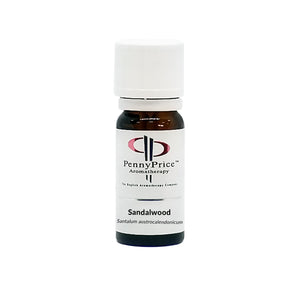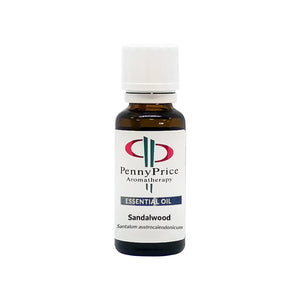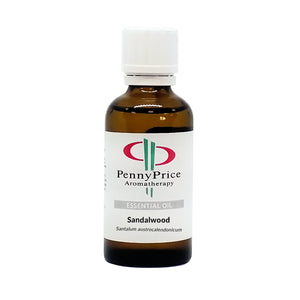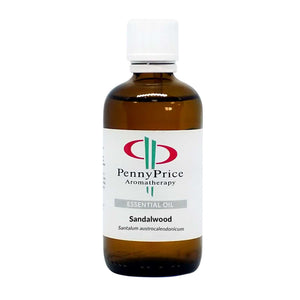Your Cart is Empty
- Shop
- Therapist Discount
- About Us
- FAQ, Blog & Downloads
- My Account
- Courses
- Saturday Club
- Free Blending Series
- Product Catalogue
- Contact Us
- 01455 251020
- Login





Latin Name: Santalum austrocalendonicum
Plant Family: Santalaceae
Extraction: Distillation of heartwood & roots
Sandalwood is a yellow, sweet, balsamic, woody aroma with fresh overtones and a comforting base.
A small, evergreen tree about 9 meters high, it has brown-grey bark, leathery leaves and small pink flowers. The tree has to be over thirty years old before it is ready for the production of essential oil, which is extracted from the heartwood of the tree. The Australian type produces a very similar oil but with a dry-bitter top note. The so-called West Indian Sandalwood or Amyris is a poor substitute and bears no botanical relation to the East Indian type.
Pure Essential Oil - Available in 3ml,10ml, 25ml, 50ml & 100ml.
Regarded as a 'cure-all' in Spain, sandalwood was believed to promote longevity and protect against infections such as the plague. It was used to treat rheumatism, digestive complaints and menstrual problems.
Sandalwood is a base note and blends well with, clary sage, citronella, eucalyptus, juniper, cedarwood, pine, lavender, lavandin and rosemary.
Sandalwood Essential Oil Safety Data Sheet
Essential oils are very powerful and should be used with caution. Here are a few tips that you may find useful, although we advise that you consult a fully qualified, registered aromatherapist who will be able to advise you on the safe methods of use. Why not give us a ring at 01455 251020 or email [email protected] if you are unsure we will be happy to help.
Inhalation
Undiluted essential oils may be inhaled from a tissue or a pillow (4-6 drops). Alternatively, they can be inhaled from a bowl of hot water (3 or 4 drops) or a diffuser (see table below), but avoid this if asthmatic. Never inhale essential oils directly from the bottle.
Shampoo and Bath Foam
Create unique aromatherapy bath foams or shampoos by mixing up to 30 drops of your own essential oil blend into 100ml of a suitable bath foam base or shampoo base.
Skincare Cream
Essential oils can be added to vegetable-based creams and then developed into facial products or topical creams. Do not add more than 15 drops of essential oil to 50ml of your base cream.
Pregnancy
Essential oils are best avoided during the first months of pregnancy. After the third month, many oils can be used safely and effectively. If in doubt, always consult a qualified aromatherapist. Find out more in our blog, Aromatherapy & Pregnancy
Bath, Massage, Vaporiser
See the table below, which gives the correct amounts to use depending on age, and a brief guide on how to use.
Download a printable version of our blending guidlines for you to keep here
|
|
12+ Years |
Child 2-12 Yrs |
Baby 0-2 Yrs |
How to Use |
|
Bath |
4-6 drops in a vegetable carrier oil, lotion or detergent base |
2-3 drops diluted in a small amount of white lotion or detergent base |
1-2 drops diluted in a small amount of white lotion or detergent base |
Allow water to run into the bath, then add your blend and swish to disperse evenly for about 2 minutes |
|
Massage |
4-6 drops in 10-15ml of vegetable carrier oil |
2-4 drops in 10ml lotion or vegetable carrier oil |
2 drops in 10ml lotion or vegetable carrier oil |
Massage your blend directly on the skin. Use very gentle strokes when massaging a baby. |
|
Vaporiser |
4-6 drops in a small amount of water (ideally distilled) |
The subtle release of aromatic oils into the air induces relaxation or stimulation. Always follow the manufacturer’s instructions. |
||
|
Diffuser |
3-5 drops per 100ml of water (ideally distilled) |
|||
Please note a detergent base would be a soap base, bath foam base or a shampoo base for example.
You can see our selection of bases here.